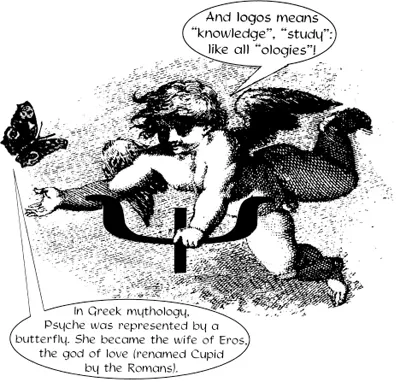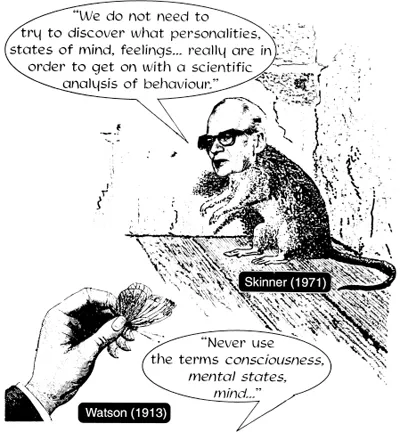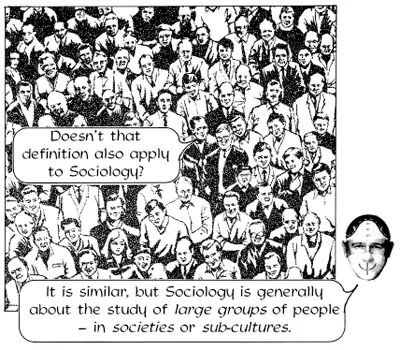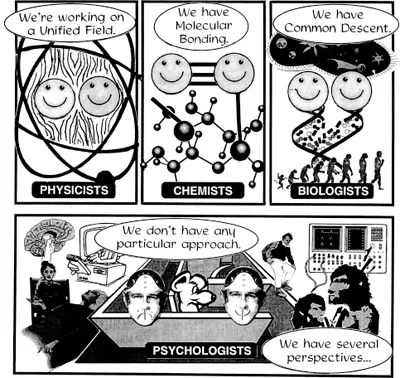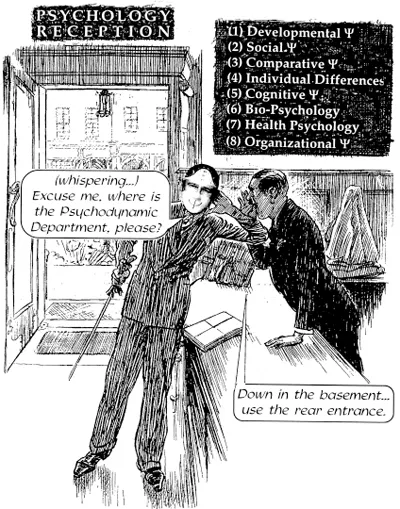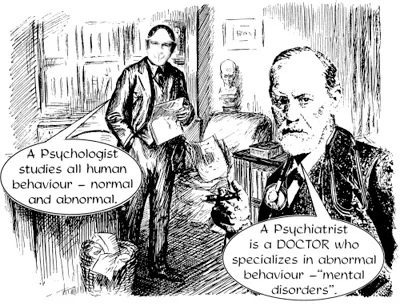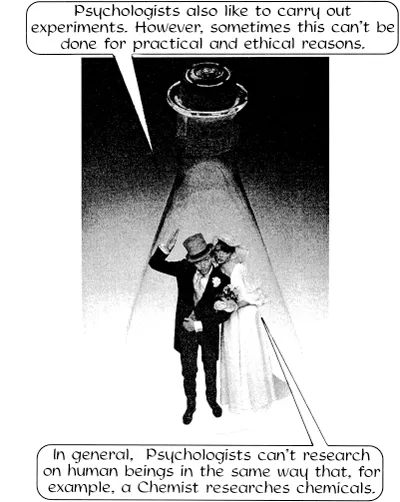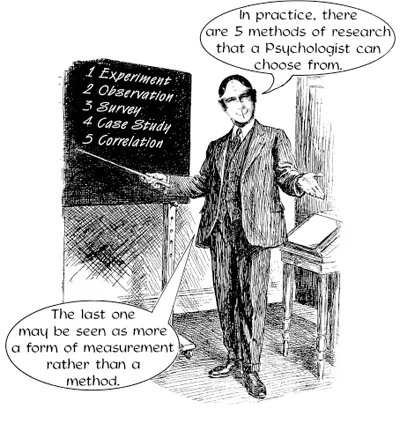![]()
WHAT IS PSYCHOLOGY?
“Psychology” comes from two words: psyche and logos. The word psyche (pronounced “sigh-key”) is from the Greek word Ψυχη – meaning “breath of life”, i.e. “soul or spirit”, loosely translated as MIND.
The Greek letter Ψ (spelled “psi”, and pronounced “sigh”) is now used as the international symbol for Psychology.
Hence, Psychology was originally defined as: the study of the mind.
But, this isn’t how most Psychologists define Psychology today.
Towards a Definition
Most Psychologists try hard to make a clear distinction between what is proper Psychology, and what isn’t.
So, how do Psychologists define “Psychology”? Well, there are difficulties in finding one universally accepted definition. Although most Psychologists agree that it is important to be scientific – to avoid muddled thinking – it’s not always clear exactly what this means.
Another difficulty is the practical problem – some say “impossibility”! – of studying the “mind” directly. Indeed, even trying to define “mind” is very difficult. Some Psychologists have avoided this completely, especially the Behaviourists, like B. F. Skinner and J. B. Watson.
In practice, therefore, most Psychologists concentrate on what is observable and measurable in a person’s behaviour, including the biological processes in the body. At the same time, despite the extreme views of certain Behaviourists, the “mind” is still generally considered to be central to the subject.
Thus, a commonly accepted “working definition” is:
Psychology is the scientific study of the mind and behaviour of humans and animals.
Psychology, on the other hand, is mainly about individuals or small groups of people, as in Social Psychology.
There are also differences in the methods used. In Psychology, there is emphasis on experiments, but in Sociology that method is not usually possible – for practical and ethical reasons – so observations and surveys are more commonly used.
What Does Psychology Include?
Unlike the Natural Sciences, Psychology doesn’t have one unifying theory or particular approach…
We shall look at the 6 main approaches or perspectives within Psychology:
PSYCHODYNAMIC; BEHAVIOURISM; COGNITIVE (including Gestalt); HUMANISTIC; BIO-PSYCHOLOGICAL; SOCIAL-CULTURAL
The Sections Within Psychology
In addition to the different perspectives, the subject can be divided into various areas of study in university departments. A typical division would look like this:
To qualify as a Psychologist requires a recognized qualification at degree level (e.g. BSc Hons) and membership of a relevant Professional Association, for example one of the following:
the BPS – British Psychological Society (founded 1901),
the APA – American Psychological Association (founded 1893),
the APS – American Psychological Society (founded 1988).
Psychology and Psychiatry?
There is a common confusion between the two. Put simply, the difference is this:
Psychiatrists have a Medical Degree, plus a Psychiatric Qualification, and belong to a Medical Association. (Only they have the authority to prescribe drugs.) But some Psychologists also specialize, with extra training, in helping people with mental disorders – they are Clinical Psychologists.
To qualify as a Clinical Psychologist requires a good Psychology Degree (at least a 2.1) plus relevant work experience (e.g. nursing, social or care work) and a recognized Clinical qualification (e.g. a BPS approved Diploma or Masters Degree).
Some Clinical Psychologists base their therapies, like traditional Psychiatrists, on Psychoanalysis (e.g. the Tavistock Clinic), while others use Behaviour Therapy and Modification (e.g. the Maudsley Clinic). (These therapies are described later.)
Is Psychology a Science?
Since the definition includes “scientific study”, this begs the question: “What is Science?”. To most people, “science” conjures up images of laboratories with test-tubes, complex measuring equipment, etc. This is appropriate because it emphasizes the importance of EXPERIMENTS, which can only be properly carried out in controlled conditions.
Experiments are conducted to try to find the CAUSES of EFFECTS, in all scientific subjects.
So, Psychologists have to use various research METHODS other than just experiments.
METHODOLOGY
The study of methods of research is called “methodology”. There are two aspects to this:
(a) the more PRACTICAL considerations about which research methods should be used, and
(b) the more PHILOSOPHICAL questions about the nature of SCIENCE itself. Let’s start with practical methodology.
Within each method, various TECHNIQUES can be used, e.g. audio and/or video recording, questionnaires, intervie...

